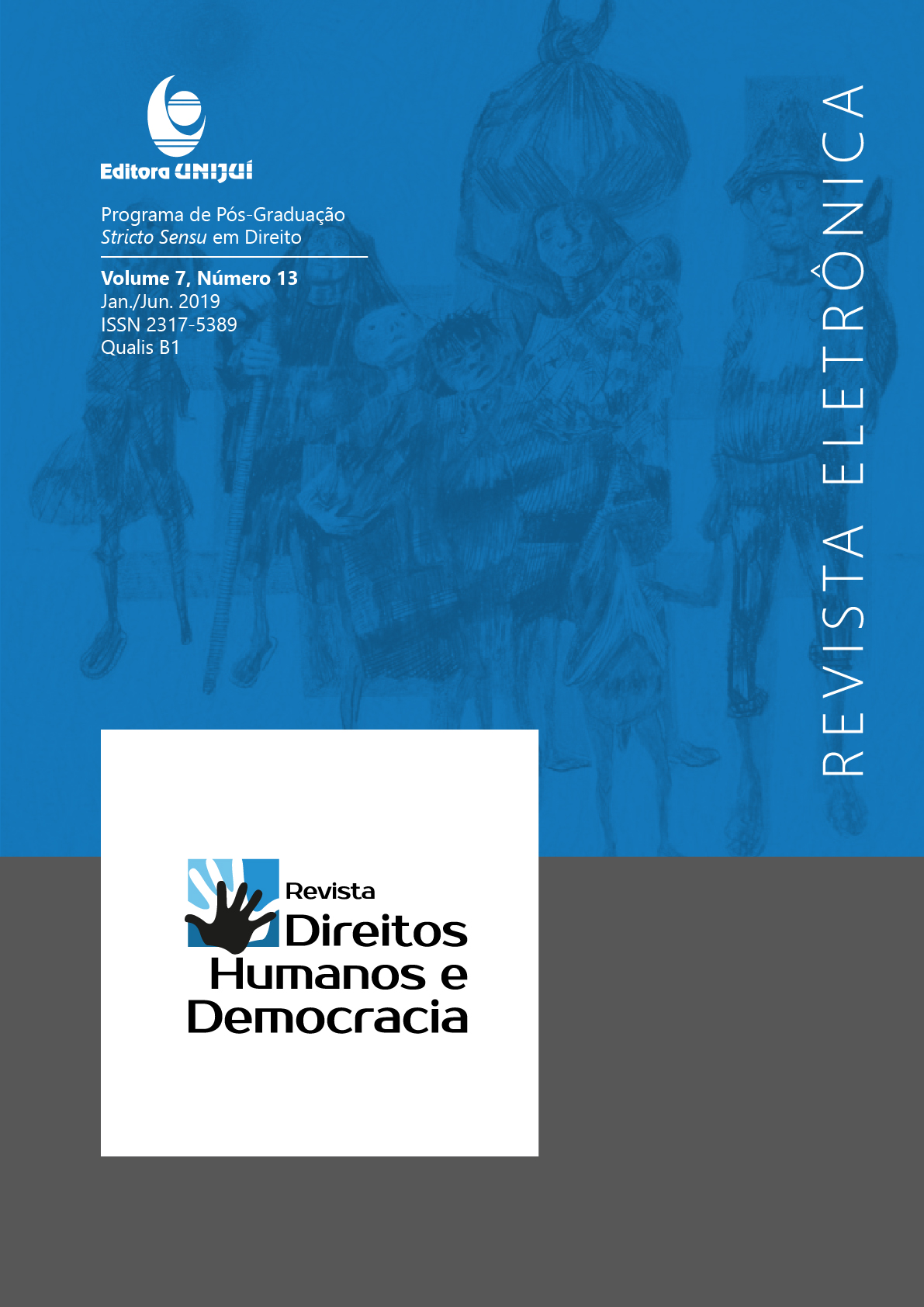THE LAW OF PEOPLES: A UTOPIA REALISTA RAWLSIANA E A IDEIA DE JUSTIÇA SOCIAL ENTRE OS POVOS
DOI:
https://doi.org/10.21527/2317-5389.2019.13.171-180Keywords:
Justiça Social. Estabilidade. Sociedade dos Povos.Abstract
In this paper we analyze how the Rawlsian social justice project, originally intended for national societies, was extended to the Peoples' Society in The Law of Peoples. We examine how John Rawls rescues and presents its essential elements in the proposal of justice among peoples, their concern to guarantee stability and the minimum of social justice within the societies that comprise the Society of Peoples. We consider how their objectives are interconnected both in the proposal of political justice for the interior of the States and in the relation between States, guaranteeing the legitimacy of societies from a basic structure and just institutions. In this context, our goal is to demonstrate that by thinking about this parallel process of justice (national and international), and projecting a second, original position, guide to its essential elements for the promotion of social justice among peoples, Rawls also presented the limits of its realistic utopia and the ways to the reconciliation of the individual with the social world to which he belongs. The study was developed based on the hypothetical-deductive approach method, using a theoretical basis present in contemporary political philosophy.
Downloads
Published
How to Cite
Issue
Section
License
By publishing in the Revista Direitos Humanos e Democracia, authors agree to the following terms:
Articles are licensed under the Creative Commons Atribuição 4.0 Internacional (CC BY 4.0), which allows:
Share — copy and redistribute the material in any medium or format;
Adapt — remix, transform, and build upon the material for any purpose, including commercial use.
These permissions are irrevocable, provided the following terms are respected:
Attribution — authors must be properly credited, with a link to the license and indication of any modifications made;
No additional restrictions — no legal or technological measures may be applied that restrict the use permitted by the license.
Notices:
The license does not apply to elements in the public domain or covered by legal exceptions.
The license does not grant all rights required for specific uses (e.g., image rights, privacy, or moral rights).
The journal is not responsible for opinions expressed in the articles, which remain the sole responsibility of the authors. The Editor, with the support of the Editorial Committee, reserves the right to suggest or request modifications when necessary.
Only original scientific articles presenting research results of interest, not previously published or simultaneously submitted to another journal with the same purpose, will be accepted.
References to trademarks or specific products are intended solely for identification purposes and do not imply any promotional endorsement by the authors or the journal.
License Agreement: Authors retain copyright over their articles and grant the Revista Direitos Humanos e Democracia the right of first publication.













